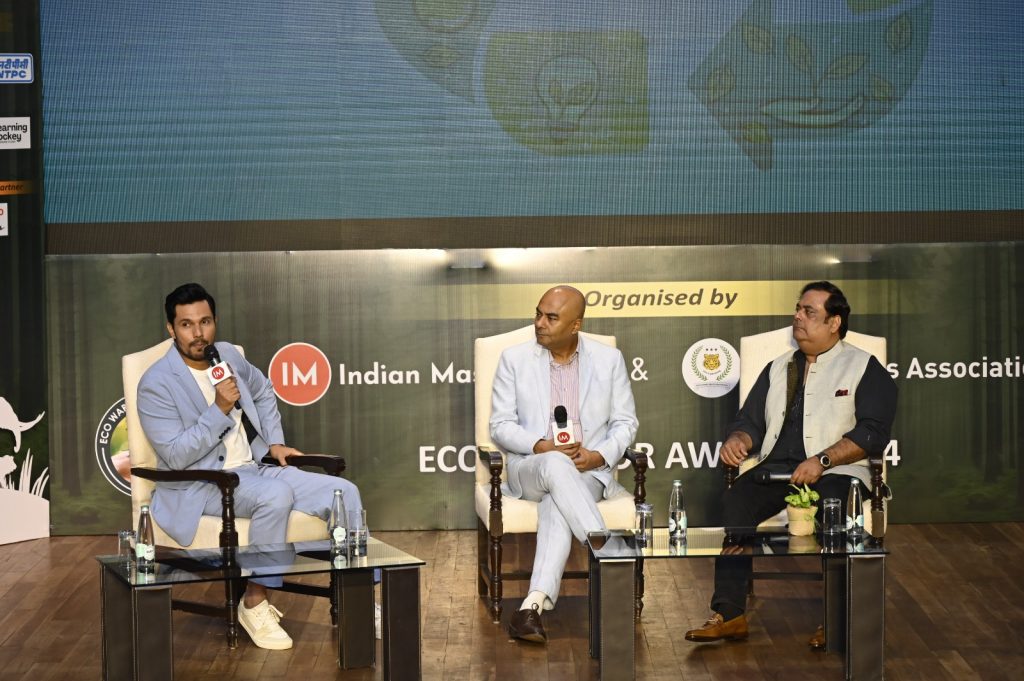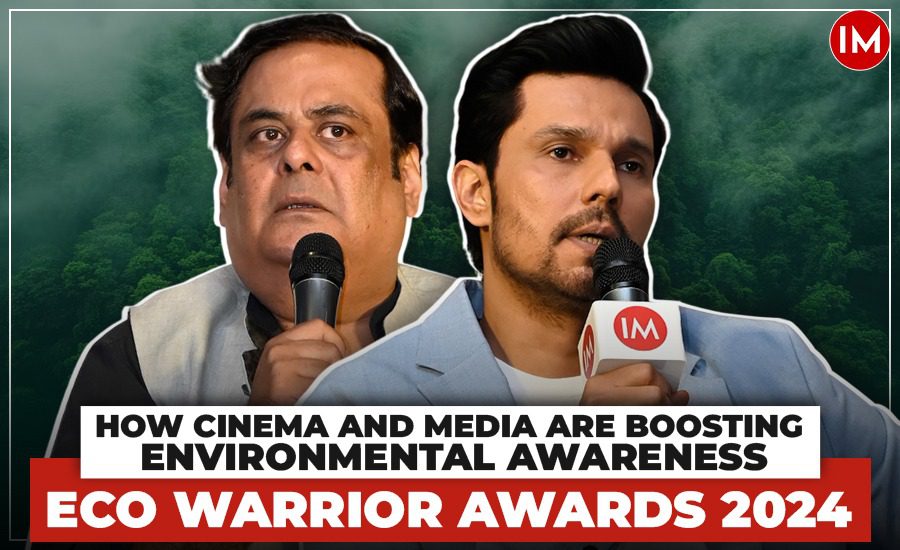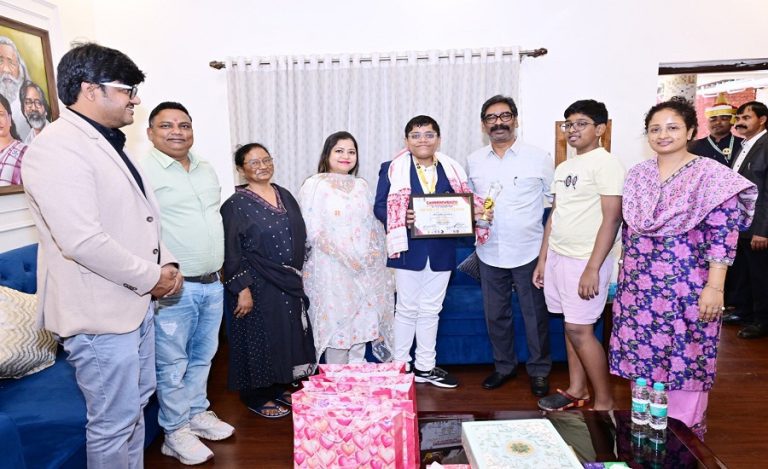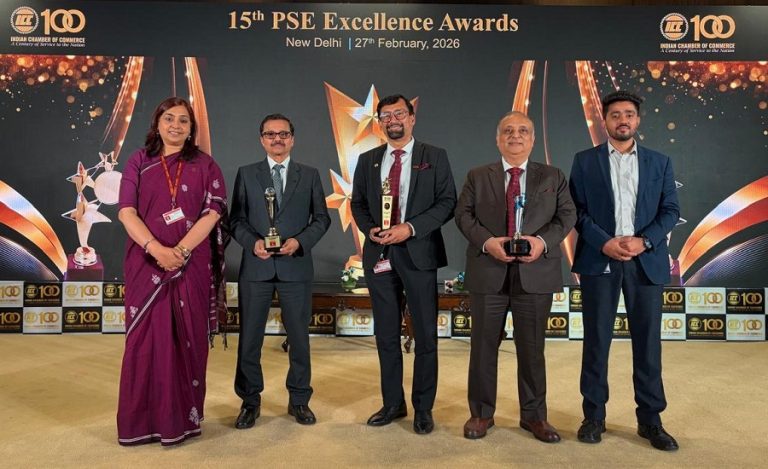In a world grappling with climate change, resource depletion, and environmental degradation, every sector of society has a role to play in fostering sustainability. Cinema and media, particularly through the voices of influential public figures, have emerged as powerful tools to shape public consciousness around environmental issues. Randeep Hooda, a celebrated actor and dedicated environmental advocate, and filmmaker Rahul Mittra are among those using their platforms to advance awareness about environmental conservation.
Both Randeep Hooda and Rahul Mittra are staunch advocates for the environment, each contributing in unique ways. Randeep Hooda’s involvement as the UN Environment Ambassador for Migratory Aquatic Species and Rahul Mittra’s films addressing environmental concerns underscore the pivotal role public figures play in raising awareness. At the Eco Warrior Awards 2024 recognizing environmental achievements, both celebrities shed light on the often-overlooked work of Indian Forest Service (IFS) officers and the importance of environmental stewardship.
Recognizing Unsung Heroes
At the event, Randeep Hooda spoke passionately about the importance of acknowledging the efforts of individuals and officers working tirelessly in environmental conservation, often in challenging conditions. “The individuals and officers working in environmental conservation, especially the Indian Forest Service (IFS) officers, often go unrecognized,” Randeep emphasized. “I’ve had the chance to visit them where they live and work, and the conditions they face are often challenging.”
By highlighting their contributions, Randeep aims to bring attention to these unsung heroes, whose work is essential in preserving India’s rich biodiversity. The recognition of such efforts, he argued, not only encourages those involved but also inspires others to join the cause. Randeep’s reflections serve as a reminder that environmental work, whether at the grassroots level or in policymaking, is often a labor of love that goes unnoticed.
Redefining Sustainability
Rahul Mittra took the stage to delve into the evolving definition of sustainability, particularly for the younger generation. “For many young people here, sustainability has become a buzzword, something we hear often but may not fully understand,” he remarked. He shared his perspective on how sustainability, once a niche topic confined to corporate social responsibility (CSR) initiatives, has now become a pressing global concern.
“Sustainability affects each one of us directly—our environment, our health, our future,” Rahul Mittra said. He called on the youth to lead the charge in reshaping societal views on sustainability, pointing out that today’s challenges, such as income inequality, caste complexities, and tribal issues, often intersect with environmental concerns.
He emphasized that sustainability is not just a duty but a necessity for survival. This understanding, he noted, must be cultivated from a young age, integrated into the education system, and reinforced by parents and schools alike. “At the end of the day, it’s the air we breathe, the water we drink—things we can’t live without,” he said.
The Film Industry’s Role in Conservation
Cinema, as Rahul Mittra highlighted, is a powerful medium capable of influencing millions. Films have the potential to subtly, yet effectively, weave messages of environmental awareness into mainstream narratives. From simple actions like a hero adopting a stray dog to promoting responsible tourism practices, filmmakers can shape societal attitudes towards the environment.
Randeep Hooda echoed these sentiments, discussing his efforts to reduce plastic use and waste on film sets. He noted that while film productions are beginning to adopt more eco-friendly practices, there is still significant room for improvement. “Every production generates a lot of waste, and I try to ensure the production team cleans up after filming,” Randeep Hooda explained.
The actor’s passion for conservation extends beyond his roles on screen. He has embraced “conservation photography,” capturing the beauty of biodiversity-rich areas to raise awareness about endangered species and habitats. By sharing these images, he hopes to inspire people to care more deeply about environmental conservation. His efforts to promote responsible tourism, particularly by encouraging visitors to lesser-known parks, are part of a broader strategy to ease the pressure on India’s more famous wildlife reserves.

The Intersection of Profit and Planet
One of the key messages both Randeep and Mr. Mittra conveyed is that economic development and environmental conservation need not be mutually exclusive. Rahul Mittra called for a shift in mindset, urging businesses and governments to prioritize sustainable practices that protect natural habitats while also fostering economic growth. “Profit and planet can coexist,” he asserted, pointing out that the COVID-19 pandemic served as a stark reminder of the delicate balance between human activity and environmental health.
Randeep Hooda, too, touched on the global nature of environmental issues, noting that resource conflicts, particularly over water, are likely to become central to international political events. His experiences on film sets and in conservation work have convinced him that small actions, like reducing waste and promoting responsible tourism, can make a significant impact when adopted at scale.
The Power of Social Media
In the digital age, social media has become a crucial tool for raising awareness about environmental issues. Both of them stressed the importance of leveraging social platforms to promote sustainability. He shared how he uses his social media presence to showcase his conservation photography, hoping to inspire his followers to take action for the environment. He believes that celebrities have a responsibility to use their fame for good, and social media offers a direct way to engage with the public.
However, Rahul Mittra cautioned against the dangers of “greenwashing,” where companies mislead consumers into thinking their products are eco-friendly. He urged audiences to become more discerning in their support of environmental causes, ensuring that their actions and purchases align with genuine sustainability efforts.
Sustainability as a National Campaign
Rahul Mittra’s suggestion to integrate environmental education into the national curriculum underscores the need for a societal shift in how we approach sustainability. By teaching children about environmental responsibility from a young age, schools can help foster a generation that is more attuned to the interconnectedness of humans and nature.
The challenge, as both acknowledged, lies in balancing development with conservation. India’s diverse landscape, rich in both natural resources and cultural complexity, presents unique challenges in managing land and water resources. Nevertheless, the path forward, they argued, must prioritize the protection of ecosystems, recognizing that once destroyed, these habitats cannot simply be replaced by planting trees elsewhere.
Conclusion
As public figures with a broad platform, Randeep Hooda and Rahul Mittra are using their influence to champion environmental causes, encouraging more people to think critically about sustainability. Their message is clear: environmental protection is not just a duty but a necessity for survival. Through cinema, social media, and public advocacy, they hope to inspire others to join them in building a more sustainable future for all.
































